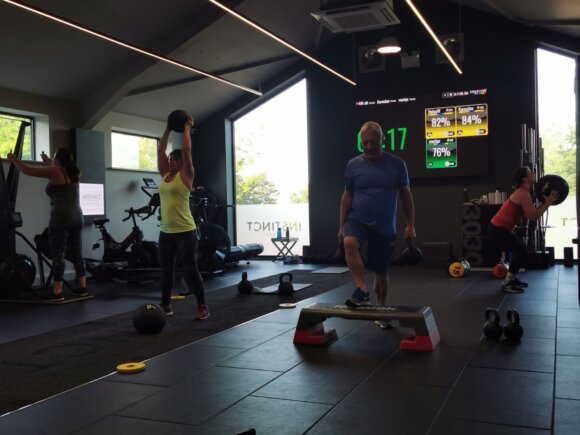

By Hayley Jones
Do you struggle to find the motivation to go to the gym?
With the nights drawing in, it is easy to slip into feeling unmotivated to go to the gym and work on your health and fitness. This is the perfect time of year to do a mindset reset and design your life to align to your goals, not your excuses.
The science of motivation can be boiled down to the following basic formula:
Motivation is not inherent in an activity, but rather it is in your own perception, so it is in your control of how motivated you choose to be.

When you are feeling like skipping the gym, the perceived drawbacks are at the forefront of your mind, rather than the benefits. You can get to a net positive motivation by stacking all of the benefits of going to the gym (or whichever activity you are wanting motivation for). Do this by thinking through a list of all of the benefits of going to the gym. Tip: Do not list the ‘shoulds’, but rather the personal benefits that you actually care about.
The key to sustained motivation is enjoying the process of achieving results.
If the outcome results are your only source of motivation, then when your results plateau, so does your consistency.
By nurturing your inner motivation for the process of going to the gym, you will find an unlimited supply of motivation.

With going to the gym, rather than focusing on the weight on the scales, instead, nurture your inner motivation by fulfilling these 6 needs:
When you start to justify why you shouldn’t go to the gym by saying to yourself ‘just this once,’ it is at this point that you decide your trajectory towards or away from success.
As The Slight Edge author Jeff Olson suggests, it is in these moments that it is easy not to go to the gym that the compounding effect kicks in towards or away from your goal.
Make sure you change up your challenge to stay interested and engaged in the activity by challenging yourself with something new. Try a new class or challenge yourself to a new goal.
If you are following instructions with none of your own input or consideration towards your own personal goals then you will likely lose interest. Making sure you have a clear intention of what you personally want to accomplish is key.

As well as having accountability to others being highly correlated with motivation, it is also important that the social environment is conducive to your success. Respectful, inclusive social environments where people are supportive of one another and each other’s goals is key.
The growth zone occurs in a challenge when you are successful in around 60% of your attempts. This 60% success provides a sense of competency, yet the 40% failure rate gives you valuable feedback to learn and grow from. Make sure you adjust the difficulty level of your task to stay in this zone of growth.

Ask yourself; ‘How does doing this (e.g. going to the gym) contribute and have benefits to others and what I care about?’, ‘How does this contribute to my values?’.
Write down your top values and then link how going to the gym contributes to these values.
If you value family and business, how does going to the gym and being healthier have benefits to your family? How does your business benefit, do you have more energy to serve your staff and customers?
Do You Need Support and Accountability? Find Out More About Our Kickstart Programme:
https://www.instinct78.co.uk/get-started/
Get started with Instinct in Tarporley.
By continuing to use the site, you agree to the use of cookies. more information
The cookie settings on this website are set to "allow cookies" to give you the best browsing experience possible. If you continue to use this website without changing your cookie settings or you click "Accept" below then you are consenting to this.